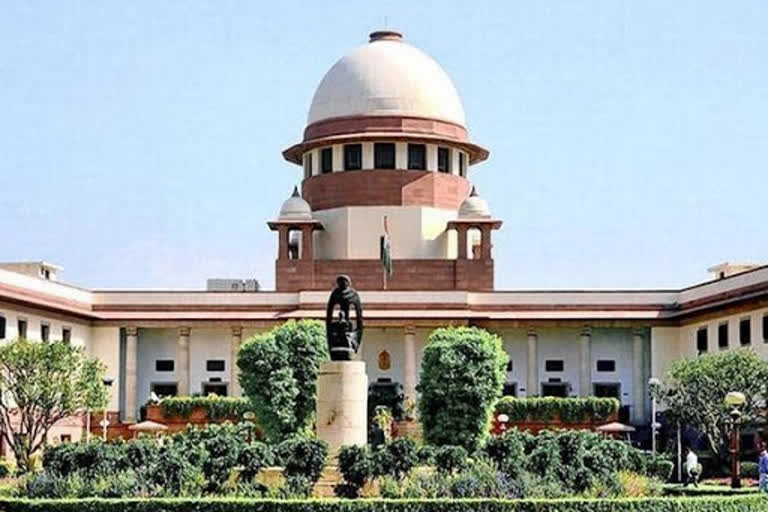New Delhi: The Union Ministry of Home Affairs (MHA) has informed the Supreme Court that the special committee constituted for reviewing the situation in Jammu & Kashmir to decide upon relaxing internet restrictions, has met twice since its formation in May and after "wide ranging assessment" it has decided to not relax internet restrictions, including 4G.
The Home Ministry's affidavit has come in response to allegation of contempt of court by the petitioner, Foundation for Media Professionals, which said that despite the top court's order of forming a committee, the government has not done so, there are no notifications on the constitution.
On 11th May, the court had ordered constituting a special committee comprising of 3 officials headed by Home secretary and directed it to examine the petitioner's contentions on non provision of 4G in the UT and consider the alternatives suggested by them which included restricted internet only in certain volatile areas.
Denying contempt of court, the government has informed the court that they had their first meeting on 15th May and there after on 10th June.
"A thorough and comprehensive consideration of all facets of the matter, including the feasibility of the alternatives suggested by the petitioners as well as the recent occurance of terrorism, related incidents in the region, was carried out,"read the affidavit.
The committee is scheduled to meet after 2 months again, however situation will be reviewed regulary by other competent authorities and "if there is an improvement in the security situation appropriate action would accordingly be taken".
Also Read:SC pulls up govt over vacancies in National Green Tribunal
The report on the situation has been submitted to Jammu & Kashmir government.
On July 16, a bench headed by Justice N V Ramana directed the Jammu and Kashmir administration and the Centre to respond on the allegations of contempt raised against it in a petition by the Foundation of Media Professionals.
The petitoner moved the Apex court seeking action against officials for allegedly defying the Top court's order on the constitution of a special committee to review the internet restrictions.
The bench had noted the decision on the services should have been put in the public domain.According to the affidavit, the special committee had held two meetings, before arriving at the conclusion to not ease restrictions on internet services in Jammu and Kashmir.
The affidavit added that a separate government notification was not required since the committee was formed following court's directive.
